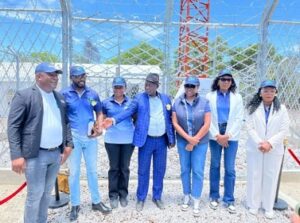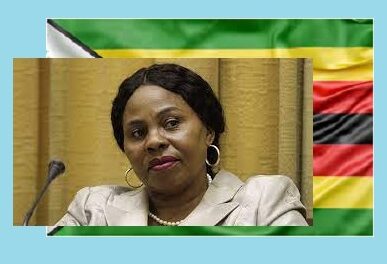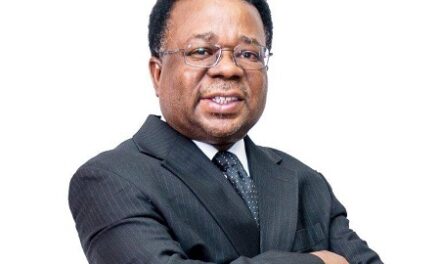
MTC, as the technical implementer of phase one of the Universal Service Fund (USF) by CRAN, has successfully handed over the first network tower of the USF.
The site was officially commissioned on 19 November 2025 by Minister of Information and Communications Technology, Ms Emma Theofelus at Epinga village in Ohangwena region.
Speaking at the event, MTC’s Managing Director, Mr Licky Erastus, highlighted that in addition to the Epinga tower, the telecommunications company has also successfully completed three more towers as part of phase one.
“Additional to Epinga, we have completed sites in Hedimbi, Ehomba, and Ongongo,” said Erastus.
“While pending completions are Naimanya, Kudumbu/Mupapama, Owiwi in the Kavango West, Gwatjinga, and Shinyashi in the Kavango East Region.
“Civil works have already been completed, and currently we are simply awaiting finalization of the electrical connection from the power utility.”
According to Erastus, “the completion of phase one of the USF will see over 9000 Namibians gain 4G access, many for the first time.
“About 10,277 customers will get to enjoy improved connectivity through 4G and Spectra services.”
Erastus added, “In implementing Phase 1, we are deploying several tower types, including 60m lattice towers, 80m guyed masts, and 120m guyed masts, all of which have robust loading capacities.
“This ensures these sites will remain structurally sound and technologically adaptable for future innovations.”
Erastus expressed that “MTC embraced the opportunity because the USF vision aligns perfectly with our mission to provide connectivity to every corner of our country.”
The Universal Service Fund is a visionary programme initiated by the Ministry of ICT and administered by CRAN. Its purpose is to support operators in extending coverage to underserved rural regions where traditional commercial investment is not economically viable.
The objective of USF is to expand network coverage with a focus on remote areas in regions such as Kavango West, Kavango East, Kunene Region, Oshikoto, and Ohangwena – building sites to expand at least 80% broadband coverage in underservice areas in the these regions as part of Phase 1.
During the event at Epinga, Minister Emma Theofelus said government is committed to the USF rollout.
“As we advance into Phase two of the Universal Service Fund rollout, government has already committed N$145 million to ensure that no community is left behind.
“This allocation forms part of the national commitment under capital projects for the period 2024 to 2027, aimed at accelerating the deployment of digital technology and infrastructure across the country.”
Theofelus added, “With the USF, government is ensuring that rural communities, often the most in need of digital access, are not left behind in the broader national development agenda.”
The social and economic ripple effects of the USF programme will be substantial, as improved connectivity will be benefitting schools – supporting learners with reliable internet speeds of up to 35 Mbps.
This means access to e-learning tools, global educational resources, and modern teaching aids.
It also strengthens the educational pipeline for future digital professionals, access to e-commerce platforms, mobile payments, and digital marketing unlocking that can unlock new avenues for growth and job creation.
CRAN’s Board Chairperson, Mrs Tulimevava Mufeti, commended MTC on its commitment to deliver on the expectations of implementing phase one of the USF.
“We are pleased with the delivery of work by MTC and have no doubt that phase one will be completed within the set timeline.”

In the photo: MTC and CRAN commission the USF network tower at Epinga village.






